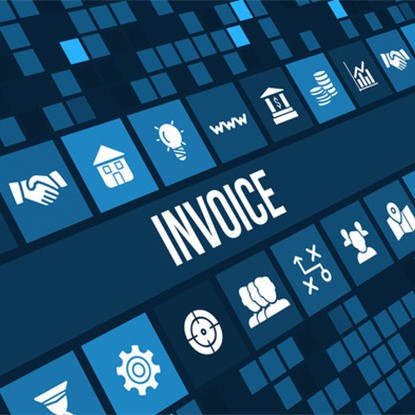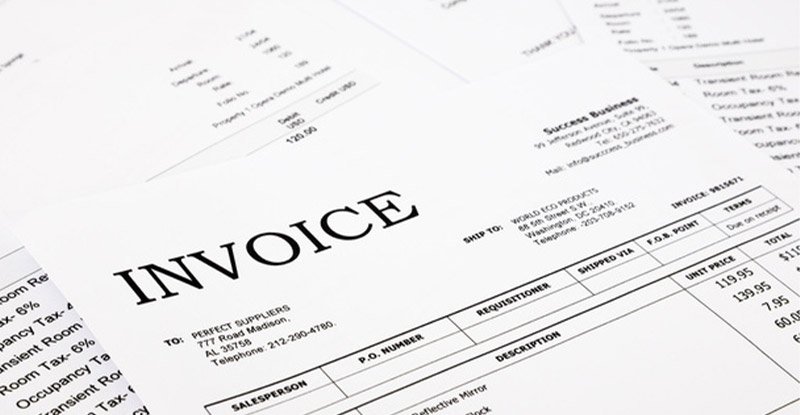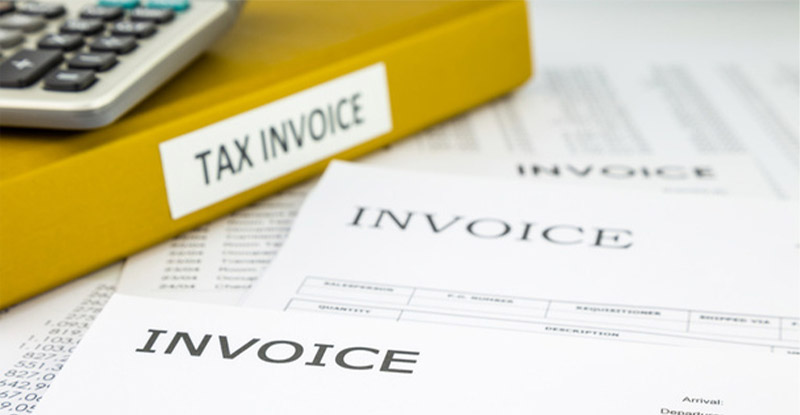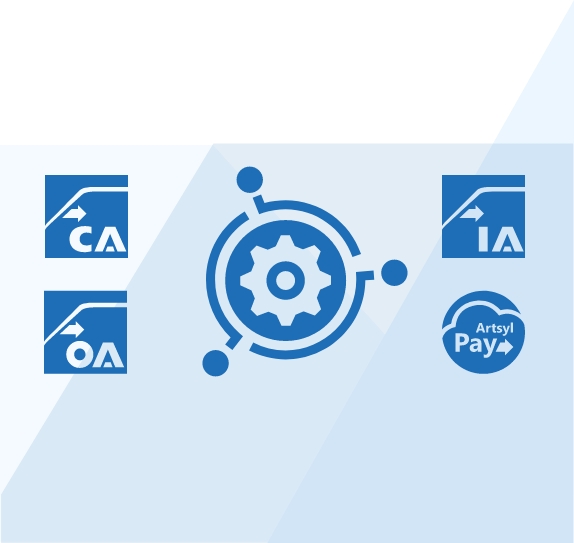Running a business can be challenging, especially when it comes to managing cash flow. Invoice factoring has become a popular way for companies to improve their working capital by receiving immediate payment on their invoices. But what exactly is invoice factoring? In this blog post, we’ll take a deep dive into the world of invoice factoring, from what it is to how it can help your business.

Take charge of your invoices! Simplify and streamline your invoice management process with InvoiceAction by Artsyl.
Say goodbye to manual data entry, lost invoices, and bottlenecks. Increase efficiency, reduce errors, and gain real-time visibility into your financials.
What is Invoice Factoring?
Invoice factoring is a financial solution for businesses in which a company sells its accounts receivables (invoices) to a third party, which is a factor. Essentially, invoice factoring allows businesses to receive advance payments for unpaid invoices.
Once a business sends its invoices to a factor, the factor usually pays a percentage of the invoice’s value. In return, the business gets immediate access to cash to meet its operational needs.
Simply put, invoice factoring is a financial transaction where a business sells its accounts receivables, or invoices, to a third-party funding source, known as a factor. In exchange for the invoices, the factor will pay the business an upfront amount, usually a percentage of the invoice value.
The business receives the cash it needs to pay its bills or invest in growth, and the factor takes on the responsibility of collecting the outstanding payments from the client.
Supercharge your invoice management with InvoiceAction. Automate data extraction, eliminate repetitive tasks and ensure accuracy in every transaction. Empower your team to focus on strategic initiatives and drive business growth.
Book a demo now
Invoice Factoring: How It Works
When a company sells its unpaid invoices to a factor, it typically receives a percentage of its value upfront, often around 85%. The factor takes ownership of the account’s receivables and collects payment from the customers on behalf of the business.
Once the factor receives payment, it remits the remaining balance to the business minus the fee for the factoring service. Factors charge fees ranging from a few digits to a few percentages of the amount of money advanced to the business.
The process of invoice factoring typically involves the following steps:
Step 1: The business provides goods or services to its customers and generates invoices.
Invoice factoring begins when a business sells its products or services to its customers on credit terms. This generates invoices that outline the transaction details, including the amount owed, payment terms, and due dates.
Step 2: The business sells the invoices to a factoring company, usually at a discounted rate.
The business sells its invoices to a factoring company to improve cash flow and access immediate funds. The factoring company evaluates the creditworthiness of the business’s customers and offers to purchase the invoices at a discounted rate.
The discount rate is typically a percentage of the total invoice value, reflecting the factoring company’s fee for assuming the responsibility of collecting payment.
Step 3: The factoring company advances a certain percentage of the invoice value to the business.
Upon reaching an agreement, the factoring company advances a portion of the invoice value to the business. This advance payment can range from 70% to 90% of the invoice value, depending on various factors such as the creditworthiness of the customers and the specific terms of the factoring agreement.
This immediate injection of cash provides the business with working capital to meet its financial obligations, such as paying suppliers, covering operating expenses, or investing in growth opportunities.
Invoice Automation Software
Related Videos
Step 4: The factoring company takes over collecting customer payments.
Once the factoring company purchases the invoices, it collects customer payments. The factoring company has the expertise and resources to handle the collections process effectively. They send payment reminders, follow up with customers, and ensure timely payments.
By offloading this responsibility to the factoring company, the business can focus on its core operations without allocating resources for collections activities.
Step 5: Once the customers pay the invoices, the factoring company deducts its fees and remits the remaining amount to the business.
As customers make payments towards the invoices, the factoring company deducts its fees from the collected funds. These fees typically include the discount rate (the percentage deducted during the initial purchase of the invoices) and any additional service fees specified in the factoring agreement.
After deducting the fees, the factoring company remits the remaining amount to the business. This final payment settlement ensures the business receives the invoice value balance minus the factoring company’s charges.
In summary, invoice factoring provides businesses with a practical solution to bridge the gap between invoice issuance and customer payment. By leveraging the services of a factoring company, businesses can improve their cash flow, access immediate funds, and delegate the responsibility of collections to experts in the field.
As you can see, invoice factoring simplifies financial management and allows businesses to focus on their core operations while ensuring a steady stream of working capital.
Transform your cash flow with InvoiceAction by Artsyl.
Speed up invoice processing, enhance payment visibility, and reduce payment delays. Don’t let outstanding invoices hold you back—unlock your cash flow
potential with InvoiceAction!
Book a demo now
Benefits of Invoice Factoring
One of the benefits of invoice factoring is that it provides businesses with immediate cash flow. Rather than waiting out the typical payment terms of 30, 60, or even 90 days, businesses can receive payment immediately.
Other advantages invoice factoring offers for businesses include the following:
- Outsourced collections: Factoring companies handle the collection process, saving businesses time and effort in pursuing overdue payments.
- Flexibility: Factoring arrangements can be customized to meet the unique needs of businesses, accommodating fluctuations in sales volume.
- No debt incurred: Invoice factoring is not a loan, so businesses don’t accumulate debt on their balance sheets.
In addition, invoice factoring can be a helpful tool for companies that don’t qualify for traditional bank financing due to factors like poor credit ratings or short operating histories.
Another benefit of invoice factoring is reducing the administrative burden on businesses. Factors can assume the responsibility of collecting client payments, allowing business owners to focus on growing and managing their business rather than chasing down past-due invoices. Factors may also handle credit checks on clients and provide businesses with valuable insights into their customers’ payment habits.
What Are the Costs of Invoice Factoring?
Now, you may be wondering, what are the costs associated with invoice factoring? Most factoring companies charge a percentage of the invoice value, typically between 1-5%, depending on the industry and the client’s creditworthiness.
While this may seem steep, it’s essential to consider the value of immediate cash flow, reduced administrative burdens, and the ability to take on new business opportunities.
Invoice factoring is not a one-size-fits-all solution, and it’s essential to carefully evaluate the terms and conditions of any potential factoring agreement. Working with a reputable factor with experience in your industry is crucial and can provide you with the flexibility and support your business needs.
Achieve complete control and transparency in your invoice management process with InvoiceAction by Artsyl. Track invoices, manage approvals, and monitor payment status effortlessly. Seamlessly integrate with your existing ERP and accounting systems.
Book a demo now
Is Invoice Factoring Suitable for All Businesses?
Overall, invoice factoring is a valuable financial solution for businesses that need quick access to cash flow and want to eliminate the burden of collections. Still, invoice factoring is only suitable for some businesses. Only some businesses with a solid customer base, a consistent revenue stream, or marketable collateral are eligible for invoice factoring.
Factors assess the creditworthiness of a business’s customers before agreeing to purchase the invoices. Factors prefer businesses whose customers have a reputation for paying their bills on time. Business owners should also consider the long-term cost of factoring as an alternative financing option.
Final Thoughts: How to Best Use Invoice Factoring
Invoicing factoring can be a powerful tool for businesses looking to improve their cash flow. It offers a way for companies to receive payment immediately and reduce their administrative burden, allowing for more efficient growth and management. While costs are associated with invoice factoring, the benefits it can provide are well worth considering.
When exploring invoice factoring options, work with a reputable factor that understands your industry and can offer flexible terms to meet your needs.
Future-proof your invoice management with InvoiceAction! Leverage AI-powered data extraction, intelligent automation, and advanced analytics. Enhance compliance, reduce costs, and improve operational efficiency. Don’t miss out on this opportunity to revolutionize your invoice management—request a consultation now!
Book a demo now
FAQ
What is invoice factoring?
Invoice factoring, or accounts receivable factoring, is a financial transaction where a business sells its outstanding invoices or accounts receivable to a factoring company at a discounted rate. The factoring company then assumes the responsibility of collecting payment from the customers.
Is invoice factoring suitable for all businesses?
Invoice factoring generally benefits businesses that sell products or services on credit terms and experience cash flow gaps due to slow-paying customers. It is commonly used by small and medium-sized businesses, start-ups, and those with limited access to traditional financing options.
However, businesses with a high percentage of cash sales or customers who consistently pay on time may not find invoice factoring advantageous.
How are the fees determined in invoice factoring?
Factoring fees typically consist of the discount rate (percentage of the invoice value charged by the factoring company) and additional service fees. The discount rate is influenced by factors such as the customer’s creditworthiness, the volume of invoices being factored in, and the time it takes to pay. It is important for businesses to carefully review and understand the fee structure before entering into an invoice factoring agreement.
Does invoice factoring affect customer relationships?
Yes, since the factoring company takes over the responsibility of collecting payment from the customers, potentially impacting the business-customer relationship. However, reputable factoring companies handle the collections process professionally and maintain the confidentiality of the arrangement.
Some factoring companies may even offer white-label services, collecting payments in the business’s name and thus minimizing any potential disruption to customer relationships.
These are just some commonly asked questions about invoice factoring. If you are considering invoice factoring for your business, it is advisable to consult with a reputable factoring company and thoroughly understand the terms and conditions of the agreement.


 Invoicing and Accounting Software
Invoicing and Accounting Software What Are Invoice Approvals?
What Are Invoice Approvals? Purchase Order vs. Sales Order: What is the Difference?
Purchase Order vs. Sales Order: What is the Difference? Improving Accounts Payable Invoice Processes
Improving Accounts Payable Invoice Processes Invoice Approval Workflow: What Is It?
Invoice Approval Workflow: What Is It? Best Practices for Smooth Online Payment Invoice Processing
Best Practices for Smooth Online Payment Invoice Processing